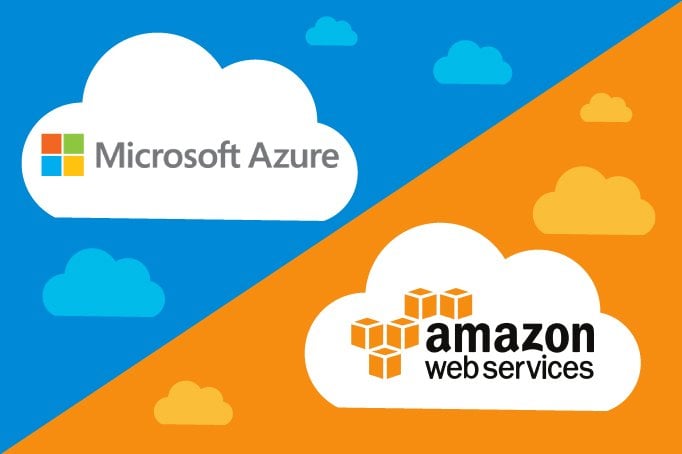If you have considered moving your computing services to the public cloud, chances are good you’ve heard of Amazon Web Services (AWS) and Microsoft Azure. Both services provide robust computing power, often at a better price point than maintaining on-premise servers or continuous demand in server computing capacity upgrade in data center. When formulating your strategy and choosing your public cloud data management system, consider some of the features and differences between AWS and Microsoft Azure.
- Pricing:
Both services offer pay-as-you-go models; you are billed for the computer time you use as you use it. Azure pay-as-you-go contract allows you to pre-pay or pay monthly and receive upfront discounts.AWS pay-as-you-go allows you to reserve an instance for several years by paying upfront, or you can bid for extra capacity as it becomes available. - Ease of use:
Azure: If you are familiar with Microsoft administration products, you won’t be surprised that Azure has a familiar look and feel. Azure easily integrates cloud servers with your in-house windows servers, creating a hybrid environment with one consistent look and feel. Standard Microsoft tools, like SQL Database, work well with Azure so you can translate your skills easily to the cloud platform. AWS: Although there is a learning curve with AWS, the many powerful features and functions make it worthwhile. AWS integrates with many third party systems and offers a great deal of power and flexibility. You can customize AWS to meet your needs and fit your environment, but a sophisticated technical ability may be required. - Compute Power:
The processing power the cloud service offers is a critical consideration when choosing a public cloud partner. Consider that the compute power is directly proportional to the price of the service. The greater the compute power, the higher the price.Azure: Provides Virtual Machines and Virtual Machine Scale Sets. Virtual Machines include support for SAP, IBM, SQL Server, Oracle, Windows Server, and Linux. Virtual Machines provides the freedom of open source software configured just the way you need it and available for development and testing, running applications, and extending your datacenter.AWS: EC2 (The AWS Elastic Compute Cloud) manages all of AWS’ compute EC2 manages virtual machines that you can configure or use with preconfigured settings for ease of use. EC2 instance decreases the time necessary to obtain and boot new server instances, allowing you to quickly modify capacity as your computing requirements change. You pay only for capacity that you actually use.
As you analyze the right platform for your organization, you should consider a cloud expert to evaluate your current environment and make recommendation based on future growth and plans. The choice between Managed AWS and Managed Azure can be a difficult one. Analytix Managed Cloud Services consultants go the extra mile to help you maximize the highest return on your cloud investment. To learn more, visit www.analytixit.com.
